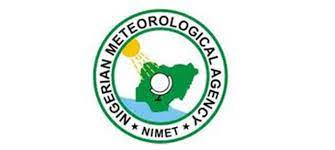
Nestlé drives circular economy through plastic recycling
Nestlé Nigeria Plc has reiterated its dedication to fostering a circular economy through an ambitious nationwide initiative focused on plastic recycling, which aims to combat waste pollution, enhance environmental sustainability, and create new economic opportunities for local communities.
The company detailed its initiatives in an article titled "Building a Circular Nigeria: How Private Sector Collaboration is Transforming Plastic Waste into Opportunity," which was published on Tuesday.
As stated by Nestlé, Nigeria generates approximately 2.5 million tonnes of plastic waste annually, with less than 10 percent being effectively recycled. The remaining waste is deposited in landfills, waterways, and coastal areas, a scenario that continues to threaten ecosystems, obstruct drainage systems, and heighten the country's susceptibility to flooding.
In response to this issue, Nestlé has emphasized its ongoing efforts to enhance collaborations with government bodies, recycling organizations, and community-based enterprises under the Food and Beverage Recycling Alliance, a Producer Responsibility Organisation established by leading consumer goods companies.
The FBRA, in close cooperation with the National Environmental Standards and Regulations Enforcement Agency, is leading Nigeria's implementation of Extended Producer Responsibility, a framework that requires producers to assume responsibility for the environmental effects of their products throughout their entire lifecycle.
Through this alliance, Nestlé and its collaborators have established new waste collection and recycling systems, bolstered community involvement, and invested in awareness initiatives aimed at promoting behavioral change.
Since 2019, Nestlé Nigeria has successfully diverted over 61,000 tonnes of plastic waste from landfills by supporting recyclers and social enterprises such as Chanja Datti, Wecyclers, and Maladase Ecopreneur Management Ltd.
The company’s Plastic Advantage Programme also provides assistance to 43 mini-aggregators through training, equipment, and financial incentives aimed at enhancing their collection capabilities and generating income opportunities for thousands of informal waste pickers.
In a significant advancement towards sustainable packaging, the company has launched 50 percent recycled PET bottles for its Nestlé Pure Life Water, marking a first in Nigeria and achieving the highest level allowed under existing regulatory standards.
In addition to production and recycling efforts, Nestlé has established an Employee Plastics Collection Scheme, which motivates employees to bring their plastic waste to specified drop-off locations at offices and factories. According to the initiative, it not only reinforces the internal culture of sustainability but also leads to a tangible environmental impact.
Nestlé highlighted that while corporate investments are essential, Nigeria’s journey towards circularity necessitates enhanced policy support, increased public awareness, and the development of infrastructure.
"Achieving true circularity requires collaboration among industry, government, and citizens to ensure that plastic is never treated as waste but rather as a valuable resource," the company stated in the article.
Nestlé Nigeria Plc, a subsidiary of Nestlé S.A., has been operating in Nigeria for over 60 years. The company, which is listed on the Nigerian Exchange Limited, produces essential household products such as Milo, Maggi, Golden Morn, Cerelac, and Nestlé Pure Life Water.





